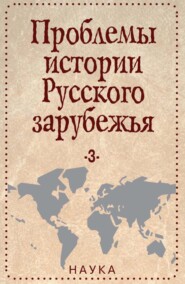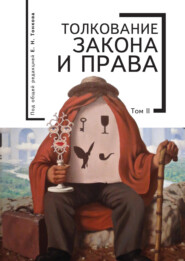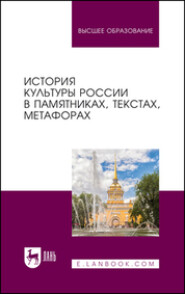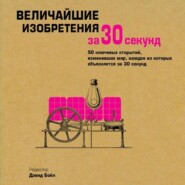По всем вопросам обращайтесь на: info@litportal.ru
(©) 2003-2024.
✖
33 лучших юмористических рассказа на английском / 33 Best Humorous Short Stories
Настройки чтения
Размер шрифта
Высота строк
Поля
Here Mrs. Barrows laughed outright. ‘You thought we were the only ones on board, but – we weren’t. The car was crowded,’ she said.
‘Then I don’t remember it,’ said Willis. ‘The only time I ever rode on a horse-car with you to my knowledge was—’
‘I know; this was the occasion,’ interrupted Mrs. Barrows. ‘You sat in a corner at the rear end of the car when I entered, and I was very much put out with you because it remained for a stranger, whom I had often seen and to whom I had, for reasons unknown even to myself, taken a deep aversion, to offer me his seat, and, what is more, compel me to take it.’
‘I don’t understand,’ said Willis. ‘We were alone on the car.’
‘To your eyes we were, although at the time I did not know it. To my eyes when I boarded it the car was occupied by enough people to fill all the seats. You returned my bow as I entered, but did not offer me your seat. The stranger did, and while I tried to decline it, I was unable to do so. He was a man of about my own age, and he had a most remarkable pair of eyes. There was no resisting them. His offer was a command; and as I rode along and thought of your sitting motionless at the end of the car, compelling me to stand, and being indirectly responsible for my acceptance of courtesies from a total and disagreeable stranger, I became so very indignant with you that I passed you without recognition as soon as I could summon up courage to leave. I could not understand why you, who had seemed to me to be the soul of politeness, should upon this occasion have failed to do not what I should exact from any man, but what I had reason to expect of you.’
‘But, Mrs. Barrows,’ remonstrated Willis, ‘why should I give up a seat to a lady when there were twenty other seats unoccupied on the same car?’
‘There is no reason in the world why you should,’ replied Mrs. Barrows. ‘But it was not until last winter that I discovered the trick that had been put upon us.’
‘Ah?’ said Willis. ‘Trick?’
‘Yes,’ said Mrs. Barrows. ‘It was a trick. The car was empty to your eyes, but crowded to mine with the astral bodies of the members of the Boston Theosophical Society.’
‘Wha-a-at?’ roared Willis.
‘It is just as I have said,’ replied Mrs. Barrows, with a silvery laugh. ‘They are all great friends of my husband’s, and one night last winter he dined them at our house, and who do you suppose walked in first?’
‘Madame Blavatsky’s ghost?’ suggested Willis, with a grin.
‘Not quite,’ returned Mrs. Barrows. ‘But the horrible stranger of the horse-car; and, do you know, he recalled the whole thing to my mind, assuring me that he and the others had projected their astral bodies over to New York for a week, and had a magnificent time unperceived by all save myself, who was unconsciously psychic, and so able to perceive them in their invisible forms.’
‘It was a mean trick on me, Mrs. Barrows,’ said Willis, ruefully, as soon as he had recovered sufficiently from his surprise to speak.
‘Oh no,’ she replied, with a repetition of her charming laugh, which rearoused in Willis’s breast all the regrets of a lost cause. ‘They didn’t intend it especially for you, anyhow.’
‘Well,’ said Willis, ‘I think they did. They were friends of your husband’s, and they wanted to ruin me.’
‘Ruin you? And why should the friends of Mr. Barrows have wished to do that?’ asked Mrs. Barrows, in astonishment.
‘Because,’ began Willis, slowly and softly – ‘because they probably knew that from the moment I met you, I – But that is a story with a disagreeable climax, Mrs. Barrows, so I shall not tell it. How do you like Boston?’
The Ghost Club
An unfortunate episode in the life of No. 5010
Number 5010 was at the time when I received the details of this story from his lips a stalwart man of thirty-eight, swart of hue, of pleasing address, and altogether the last person one would take for a convict serving a term for sneak-thieving. The only outer symptoms of his actual condition were the striped suit he wore, the style and cut of which are still in vogue at Sing Sing prison, and the closely cropped hair, which showed off the distinctly intellectual lines of his head to great advantage. He was engaged in making shoes when I first saw him, and so impressed was I with the contrast between his really refined features and grace of manner and those of his brutish-looking companions, that I asked my guide who he was, and what were the circumstances which had brought him to Sing Sing.
‘He pegs shoes like a gentleman,’ I said.
‘Yes,’ returned the keeper. ‘He’s werry troublesome that way. He thinks he’s too good for his position. We can’t never do nothing with the boots he makes.’
‘Why do you keep him at work in the shoe department?’ I queried.
‘We haven’t got no work to be done in his special line, so we have to put him at whatever we can. He pegs shoes less badly than he does anything else.’
‘What was his special line?’
‘He was a gentleman of leisure travellin’ for his health afore he got into the toils o’ the law. His real name is Marmaduke Fitztappington De Wolfe, of Pelhamhurst-by-the-Sea, Warwickshire. He landed in this country of a Tuesday, took to collectin’ souvenir spoons of a Friday, was jugged the same day, tried, convicted, and there he sets. In for two years more.’
‘How interesting!’ I said. ‘Was the evidence against him conclusive?’
‘Extremely. A half-dozen spoons was found on his person.’
‘He pleaded guilty, I suppose?’
‘Not him. He claimed to be as innocent as a new-born babe. Told a cock-and-bull story about havin’ been deluded by spirits, but the judge and jury wasn’t to be fooled. They gave him every chance, too. He even cabled himself, the judge did, to Pelhamhurst-by-the-Sea, Warwickshire, at his own expense, to see if the man was an impostor, but he never got no reply. There was them as said there wasn’t no such place as Pelhamhurst-by-the-Sea in Warwickshire, but they never proved it.’
‘I should like very much to interview him,’ said I.
‘It can’t be done, sir,’ said my guide. ‘The rules is very strict.’
‘You couldn’t er – arrange an interview for me,’ I asked, jingling a bunch of keys in my pocket.
He must have recognized the sound, for he colored and gruffly replied, ‘I has me orders, and I obeys ‘em.’
‘Just – er – add this to the pension fund,’ I put in, handing him a five-dollar bill. ‘An interview is impossible, eh?’
‘I didn’t say impossible,’ he answered, with a grateful smile. ‘I said against the rules, but we has been known to make exceptions. I think I can fix you up.’
Suffice it to say that he did ‘fix me up,’ and that two hours later 5010 and I sat down together in the cell of the former, a not too commodious stall, and had a pleasant chat, in the course of which he told me the story of his life, which, as I had surmised, was to me, at least, exceedingly interesting, and easily worth twice the amount of my contribution to the pension fund under the management of my guide of the morning.
‘My real name,’ said the unfortunate convict, ‘as you may already have guessed, is not 5010. That is an alias forced upon me by the State authorities. My name is really Austin Merton Surrennes.’
‘Ahem!’ I said. ‘Then my guide erred this morning when he told me that in reality you were Marmaduke Fitztappington De Wolfe, of Pelhamhurst-by-the-Sea, Warwickshire?’
Number 5010 laughed long and loud. ‘Of course he erred. You don’t suppose that I would give the authorities my real name, do you? Why, man, I am a nephew! I have an aged uncle – a rich millionaire uncle – whose heart and will it would break were he to hear of my present plight. Both the heart and will are in my favor, hence my tender solicitude for him. I am innocent, of course – convicts always are, you know – but that wouldn’t make any difference. He’d die of mortification just the same. It’s one of our family traits, that. So I gave a false name to the authorities, and secretly informed my uncle that I was about to set out for a walking trip across the great American desert, requesting him not to worry if he did not hear from me for a number of years, America being in a state of semi-civilization, to which mails outside of certain districts are entirely unknown. My uncle being an Englishman and a conservative gentleman, addicted more to reading than to travel, accepts the information as veracious and suspects nothing, and when I am liberated I shall return to him, and at his death shall become a conservative man of wealth myself. See?’
‘But if you are innocent and he rich and influential, why did you not appeal to him to save you?’ I asked.
‘Because I was afraid that he, like the rest of the world, would decline to believe my defence,’ sighed 5010. ‘It was a good defence, if the judge had only known it, and I’m proud of it.’
‘But ineffectual,’ I put in. ‘And so, not good.’
‘Alas, yes! This is an incredulous age. People, particularly judges, are hard-headed practical men of affairs. My defence was suited more for an age of mystical tendencies. Why, will you believe it, sir, my own lawyer, the man to whom I paid eighteen dollars and seventy-five cents for championing my cause, told me the defence was rubbish, devoid even of literary merit. What chance could a man have if his lawyer even didn’t believe in him?’
‘None,’ I answered, sadly. ‘And you had no chance at all, though innocent?’
‘Yes, I had one, and I chose not to take it. I might have proved myself non compos mentis; but that involved my making a fool of myself in public before a jury, and I have too much dignity for that, I can tell you. I told my lawyer that I should prefer a felon’s cell to the richly furnished flat of a wealthy lunatic, to which he replied, ‘Then all is lost!’ And so it was. I read my defence in court. The judge laughed, the jury whispered, and I was convicted instanter of stealing spoons, when murder itself was no further from my thoughts than theft.’
‘But they tell me you were caught red-handed,’ said I. ‘Were not a half-dozen spoons found upon your person?’
‘In my hand,’ returned the prisoner. ‘The spoons were in my hand when I was arrested, and they were seen there by the owner, by the police, and by the usual crowd of small boys that congregate at such embarrassing moments, springing up out of sidewalks, dropping down from the heavens, swarming in from everywhere. I had no idea there were so many small boys in the world until I was arrested, and found myself the cynosure of a million or more innocent blue eyes.’
‘Were they all blue-eyed?’ I queried, thinking the point interesting from a scientific point of view, hoping to discover that curiosity of a morbid character was always found in connection with eyes of a specified hue.
‘Then I don’t remember it,’ said Willis. ‘The only time I ever rode on a horse-car with you to my knowledge was—’
‘I know; this was the occasion,’ interrupted Mrs. Barrows. ‘You sat in a corner at the rear end of the car when I entered, and I was very much put out with you because it remained for a stranger, whom I had often seen and to whom I had, for reasons unknown even to myself, taken a deep aversion, to offer me his seat, and, what is more, compel me to take it.’
‘I don’t understand,’ said Willis. ‘We were alone on the car.’
‘To your eyes we were, although at the time I did not know it. To my eyes when I boarded it the car was occupied by enough people to fill all the seats. You returned my bow as I entered, but did not offer me your seat. The stranger did, and while I tried to decline it, I was unable to do so. He was a man of about my own age, and he had a most remarkable pair of eyes. There was no resisting them. His offer was a command; and as I rode along and thought of your sitting motionless at the end of the car, compelling me to stand, and being indirectly responsible for my acceptance of courtesies from a total and disagreeable stranger, I became so very indignant with you that I passed you without recognition as soon as I could summon up courage to leave. I could not understand why you, who had seemed to me to be the soul of politeness, should upon this occasion have failed to do not what I should exact from any man, but what I had reason to expect of you.’
‘But, Mrs. Barrows,’ remonstrated Willis, ‘why should I give up a seat to a lady when there were twenty other seats unoccupied on the same car?’
‘There is no reason in the world why you should,’ replied Mrs. Barrows. ‘But it was not until last winter that I discovered the trick that had been put upon us.’
‘Ah?’ said Willis. ‘Trick?’
‘Yes,’ said Mrs. Barrows. ‘It was a trick. The car was empty to your eyes, but crowded to mine with the astral bodies of the members of the Boston Theosophical Society.’
‘Wha-a-at?’ roared Willis.
‘It is just as I have said,’ replied Mrs. Barrows, with a silvery laugh. ‘They are all great friends of my husband’s, and one night last winter he dined them at our house, and who do you suppose walked in first?’
‘Madame Blavatsky’s ghost?’ suggested Willis, with a grin.
‘Not quite,’ returned Mrs. Barrows. ‘But the horrible stranger of the horse-car; and, do you know, he recalled the whole thing to my mind, assuring me that he and the others had projected their astral bodies over to New York for a week, and had a magnificent time unperceived by all save myself, who was unconsciously psychic, and so able to perceive them in their invisible forms.’
‘It was a mean trick on me, Mrs. Barrows,’ said Willis, ruefully, as soon as he had recovered sufficiently from his surprise to speak.
‘Oh no,’ she replied, with a repetition of her charming laugh, which rearoused in Willis’s breast all the regrets of a lost cause. ‘They didn’t intend it especially for you, anyhow.’
‘Well,’ said Willis, ‘I think they did. They were friends of your husband’s, and they wanted to ruin me.’
‘Ruin you? And why should the friends of Mr. Barrows have wished to do that?’ asked Mrs. Barrows, in astonishment.
‘Because,’ began Willis, slowly and softly – ‘because they probably knew that from the moment I met you, I – But that is a story with a disagreeable climax, Mrs. Barrows, so I shall not tell it. How do you like Boston?’
The Ghost Club
An unfortunate episode in the life of No. 5010
Number 5010 was at the time when I received the details of this story from his lips a stalwart man of thirty-eight, swart of hue, of pleasing address, and altogether the last person one would take for a convict serving a term for sneak-thieving. The only outer symptoms of his actual condition were the striped suit he wore, the style and cut of which are still in vogue at Sing Sing prison, and the closely cropped hair, which showed off the distinctly intellectual lines of his head to great advantage. He was engaged in making shoes when I first saw him, and so impressed was I with the contrast between his really refined features and grace of manner and those of his brutish-looking companions, that I asked my guide who he was, and what were the circumstances which had brought him to Sing Sing.
‘He pegs shoes like a gentleman,’ I said.
‘Yes,’ returned the keeper. ‘He’s werry troublesome that way. He thinks he’s too good for his position. We can’t never do nothing with the boots he makes.’
‘Why do you keep him at work in the shoe department?’ I queried.
‘We haven’t got no work to be done in his special line, so we have to put him at whatever we can. He pegs shoes less badly than he does anything else.’
‘What was his special line?’
‘He was a gentleman of leisure travellin’ for his health afore he got into the toils o’ the law. His real name is Marmaduke Fitztappington De Wolfe, of Pelhamhurst-by-the-Sea, Warwickshire. He landed in this country of a Tuesday, took to collectin’ souvenir spoons of a Friday, was jugged the same day, tried, convicted, and there he sets. In for two years more.’
‘How interesting!’ I said. ‘Was the evidence against him conclusive?’
‘Extremely. A half-dozen spoons was found on his person.’
‘He pleaded guilty, I suppose?’
‘Not him. He claimed to be as innocent as a new-born babe. Told a cock-and-bull story about havin’ been deluded by spirits, but the judge and jury wasn’t to be fooled. They gave him every chance, too. He even cabled himself, the judge did, to Pelhamhurst-by-the-Sea, Warwickshire, at his own expense, to see if the man was an impostor, but he never got no reply. There was them as said there wasn’t no such place as Pelhamhurst-by-the-Sea in Warwickshire, but they never proved it.’
‘I should like very much to interview him,’ said I.
‘It can’t be done, sir,’ said my guide. ‘The rules is very strict.’
‘You couldn’t er – arrange an interview for me,’ I asked, jingling a bunch of keys in my pocket.
He must have recognized the sound, for he colored and gruffly replied, ‘I has me orders, and I obeys ‘em.’
‘Just – er – add this to the pension fund,’ I put in, handing him a five-dollar bill. ‘An interview is impossible, eh?’
‘I didn’t say impossible,’ he answered, with a grateful smile. ‘I said against the rules, but we has been known to make exceptions. I think I can fix you up.’
Suffice it to say that he did ‘fix me up,’ and that two hours later 5010 and I sat down together in the cell of the former, a not too commodious stall, and had a pleasant chat, in the course of which he told me the story of his life, which, as I had surmised, was to me, at least, exceedingly interesting, and easily worth twice the amount of my contribution to the pension fund under the management of my guide of the morning.
‘My real name,’ said the unfortunate convict, ‘as you may already have guessed, is not 5010. That is an alias forced upon me by the State authorities. My name is really Austin Merton Surrennes.’
‘Ahem!’ I said. ‘Then my guide erred this morning when he told me that in reality you were Marmaduke Fitztappington De Wolfe, of Pelhamhurst-by-the-Sea, Warwickshire?’
Number 5010 laughed long and loud. ‘Of course he erred. You don’t suppose that I would give the authorities my real name, do you? Why, man, I am a nephew! I have an aged uncle – a rich millionaire uncle – whose heart and will it would break were he to hear of my present plight. Both the heart and will are in my favor, hence my tender solicitude for him. I am innocent, of course – convicts always are, you know – but that wouldn’t make any difference. He’d die of mortification just the same. It’s one of our family traits, that. So I gave a false name to the authorities, and secretly informed my uncle that I was about to set out for a walking trip across the great American desert, requesting him not to worry if he did not hear from me for a number of years, America being in a state of semi-civilization, to which mails outside of certain districts are entirely unknown. My uncle being an Englishman and a conservative gentleman, addicted more to reading than to travel, accepts the information as veracious and suspects nothing, and when I am liberated I shall return to him, and at his death shall become a conservative man of wealth myself. See?’
‘But if you are innocent and he rich and influential, why did you not appeal to him to save you?’ I asked.
‘Because I was afraid that he, like the rest of the world, would decline to believe my defence,’ sighed 5010. ‘It was a good defence, if the judge had only known it, and I’m proud of it.’
‘But ineffectual,’ I put in. ‘And so, not good.’
‘Alas, yes! This is an incredulous age. People, particularly judges, are hard-headed practical men of affairs. My defence was suited more for an age of mystical tendencies. Why, will you believe it, sir, my own lawyer, the man to whom I paid eighteen dollars and seventy-five cents for championing my cause, told me the defence was rubbish, devoid even of literary merit. What chance could a man have if his lawyer even didn’t believe in him?’
‘None,’ I answered, sadly. ‘And you had no chance at all, though innocent?’
‘Yes, I had one, and I chose not to take it. I might have proved myself non compos mentis; but that involved my making a fool of myself in public before a jury, and I have too much dignity for that, I can tell you. I told my lawyer that I should prefer a felon’s cell to the richly furnished flat of a wealthy lunatic, to which he replied, ‘Then all is lost!’ And so it was. I read my defence in court. The judge laughed, the jury whispered, and I was convicted instanter of stealing spoons, when murder itself was no further from my thoughts than theft.’
‘But they tell me you were caught red-handed,’ said I. ‘Were not a half-dozen spoons found upon your person?’
‘In my hand,’ returned the prisoner. ‘The spoons were in my hand when I was arrested, and they were seen there by the owner, by the police, and by the usual crowd of small boys that congregate at such embarrassing moments, springing up out of sidewalks, dropping down from the heavens, swarming in from everywhere. I had no idea there were so many small boys in the world until I was arrested, and found myself the cynosure of a million or more innocent blue eyes.’
‘Were they all blue-eyed?’ I queried, thinking the point interesting from a scientific point of view, hoping to discover that curiosity of a morbid character was always found in connection with eyes of a specified hue.

















